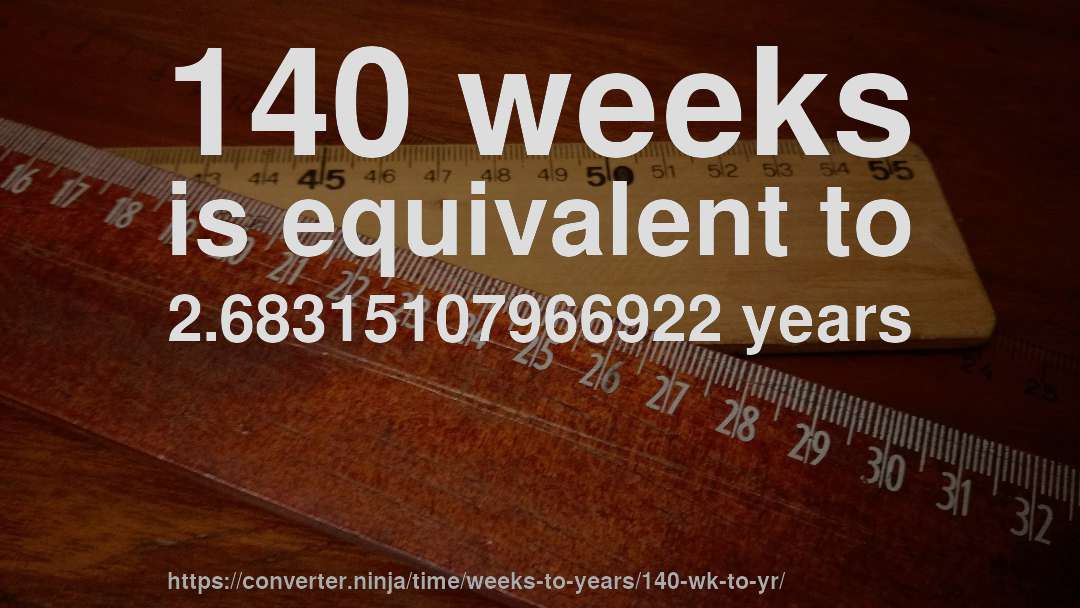
140 weeks is equivalent to 2.68315107966922 years.
We know (by definition) that: 1 wk ≈ 0.019165365 yr
We can set up a proportion to solve for the number of years.
1 wk 140 wk ≈ 0.019165365 yr x yrNow, we cross multiply to solve for our unknown x:
x yr ≈ 140 wk 1 wk * 0.019165365 yr → x yr ≈ 2.6831511 yrConclusion: 140 wk ≈ 2.6831511 yr
The inverse of the conversion factor is that 1 year is equal to 0.372696121205102 times 140 weeks.
It can also be expressed as: 140 weeks is equal to 1 0.372696121205102 years.
Approximation
An approximate numerical result would be: one hundred and forty weeks is about two point six eight years, or alternatively, a year is about zero point three seven times one hundred and forty weeks.
Units involved
This is how the units in this conversion are defined:
Weeks
"A week is a time unit equal to seven days. It is the standard time period used for cycles of rest days in most parts of the world, mostly alongside—although not strictly part of—the Gregorian calendar. The days of the week were named after the classical planets (derived from the astrological system of planetary hours) in the Roman era. In English, the names are Monday, Tuesday, Wednesday, Thursday, Friday, Saturday and Sunday."
Years
"A year is the orbital in which Earth moves in its orbit around the Sun. Due to the Earth's axial tilt, the course of a year sees the passing of the seasons, marked by changes in weather, the hours of daylight, and, consequently, vegetation and soil fertility. In temperate and subpolar regions around the globe, four seasons are generally recognized: spring, summer, autumn and winter. In tropical and subtropical regions several geographical sectors do not present defined seasons; but in the seasonal tropics, the annual wet and dry seasons are recognized and tracked."
[1] The precision is 15 significant digits (fourteen digits to the right of the decimal point).
Results may contain small errors due to the use of floating point arithmetic.ncG1vNJzZmibn6PDpr7Tnqlnppmjt6J706KknmenmrKsv4ytpmaxlZa%2FtHuQbWdmr5tiwbB52Ktm